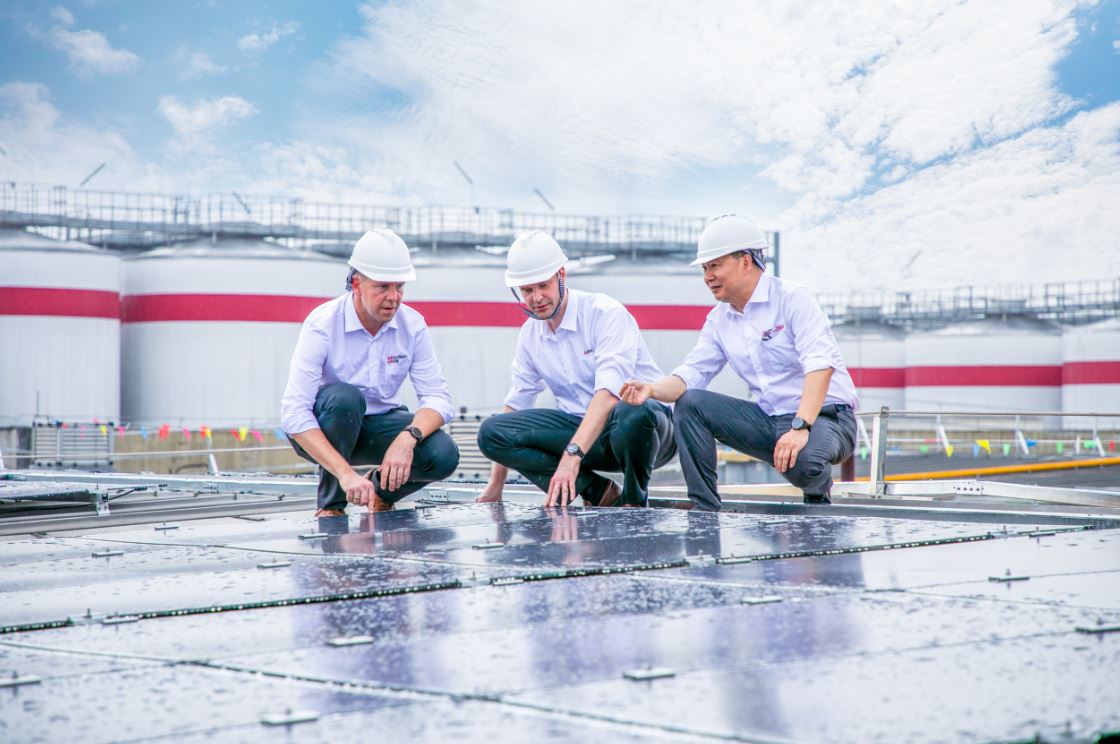Premium beer, green breweries, digital to add fizz to AB InBev's push in China


Anheuser-Busch InBev, the world's biggest brewer by production volume, will add more premium brands to its portfolio in China.
It will also have solar panels installed at nine of its upcoming China breweries by the end of this year.
These measures, the company expects, will help maintain its robust growth in China, its second-largest market after the United States.
AB InBev also plans to further develop a premium segment in China, which currently accounts for less than 1 percent of the beer market.
Jan Craps, CEO and president for AB InBev's Asia-Pacific region, said the company has found in China a consumer preference for premium products, an important trend across most consumer goods, including beer.
Compared to wines and spirits, he said beer is still in the early stages of this trend. This presents an exciting opportunity to increase sales and revenue through the introduction of premium brands and also margins by enhancing product mix.
"We will continue to enrich China's consumption upgrade with a big focus on building new capabilities that are key to sustainable market performance over the long run, such as adding investment in new beer styles, smart and green factories, e-commerce, digital marketing and analytics," he said.
The Belgium-headquartered brewer has invested more than $3 billion in China since 1995.
The company expects its strategically located Foshan brewery in Guangdong province to get connected to the national power grid at the end of this month. It has invested 24.5 million yuan ($3.57 million) to install solar panels that cover about 50,000 square meters. These will generate about 5 million kilowatt-hours of electricity annually starting this year.
Foshan is in close proximity to the Greater Bay Area that connects Guangdong province, and the special administrative regions of Hong Kong and Macao. It is home to AB InBev's biggest Budweiser brewing and bottling facility in the world. The brewery delivers 20 percent of the company's global beer production volume.
AB InBev teamed up with the United Nations Environment Programme in Foshan to advance 2025 Sustainability Goals in China this year as the country hosted the 48th World Environment Day on June 5.
Regarding its plan to upgrade the power supply system at nine of its Chinese breweries by the end of this year, Craps said the solar panels will cover a combined floor area of 410,000 square meters, equal to the size of 57 standard football pitches.
Altogether, their installed capacity would be 41 megawatts and can generate an estimated annual power output of 41 million kWh - enough to recharge 4 billion smartphones, or even launch 12 rockets to the moon, according to the company.
By then, around 30 percent of beer brand Budweiser's annual volume in China will be brewed with renewable electricity.
The clean energy sources can help cut brewing-related carbon dioxide emissions by 32,000 tons annually, equal to the positive impact of 1.78 million trees on environment.
"Sustainability is not just related to our business, it is our business," said Craps, pledging that the company will maintain its status as the brewer with the highest level of water efficiency, use recycled content in packaging its products and ensure 100 percent of its purchased electricity will be from renewable sources before 2025.
"We are now seeking more approaches and solutions to accelerate this journey, covering more breweries in China, including solar and wind power," he said.
Zhu Sijie, a consultant at the Rocky Mountain Institute, a think tank based in Colorado that monitors and projects energy trends worldwide, said China has already passed and published a responsibility scheme for the consumption of renewable energy, putting forward clear requirements for green consumption on the demand side.
"It is believed that corporate procurement of renewable energy will play an increasingly important role in boosting the growth of such energy sources," said Zhu. "More companies from different sectors can join in this meaningful pursuit, and together drive the development of renewable energy and the low-carbon transformation of China's energy sector in a marketized manner."
Supported by 19,000 employees in 31 breweries across China, AB InBev, the maker of Budweiser, Corona and Stella Artois brands of beer, saw its 2018 revenue grow by 8.3 percent year-on-year in the country, while its global sales revenue reached $54.6 billion.
Craps stressed that the rise of e-commerce and digital technologies have drastically transformed the way people in China consume and purchase products. The company has also developed its e-commerce platforms on Tmall and JD to compete with its other established rivals.
To offer consumers a variety of options across price points, he said another way to grow the beer category is by extending the company's portfolio to appeal to people with different tastes, as well as offering lager products to include options such as flavored, savory and other beer styles.
Under its plan, AB InBev will continue to deploy resources to promote the sales of its no-and low-calorie beer, and introduce craft beer in China to cater to the discerning taste of Chinese millennials of legal drinking age.




































